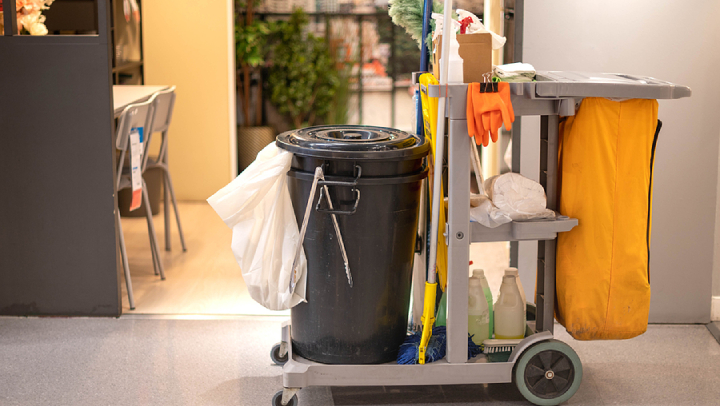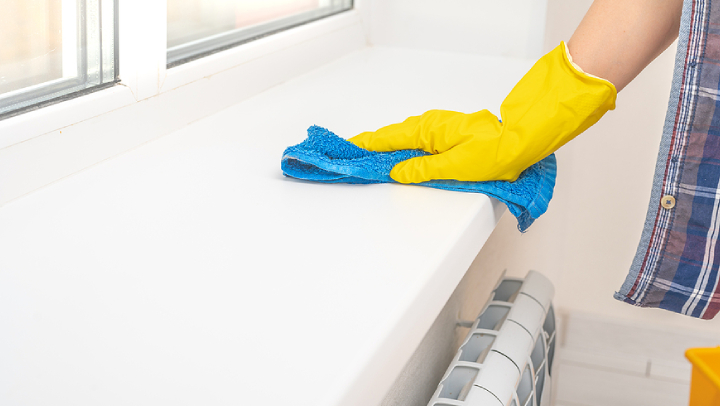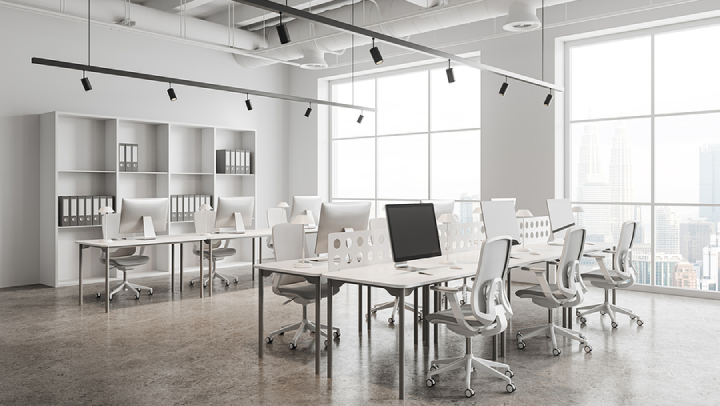Today’s corporate environment demands a clean office for employee well-being and a strong company image. However, minimising cross-contamination in shared spaces is a significant challenge. Harmful bacteria and viruses can easily spread from surface to surface, risking everyone’s health.
To combat this issue effectively, office cleaning strategies need to be tailored to prevent cross-contamination while ensuring thorough cleanliness. Here are some essential strategies that can help minimise cross-contamination in the workplace:
1. Implement proper cleaning procedures
The foundation of any successful cleaning regimen lies in implementing proper cleaning procedures. This includes using the right cleaning agents and tools for different surfaces and areas within the office. All cleaning staff should be trained extensively on the correct techniques to ensure that surfaces are thoroughly sanitised without spreading contaminants.
2. Utilise colour-coded cleaning tools
Colour-coded cleaning tools such as microfiber cloths, mop heads, and brushes can significantly reduce the risk of cross-contamination. Assigning specific colours to different areas or surfaces helps prevent the transfer of germs from one area to another. For example, using red cloths exclusively for restroom cleaning and blue cloths for office desks helps maintain hygiene standards.
3. Implement a regular cleaning schedule
Consistency is key when it comes to maintaining a clean and germ-free office environment. Implementing a regular cleaning schedule ensures that all areas of the office receive thorough cleaning and disinfection on a routine basis. High-touch surfaces such as doorknobs, light switches, and shared equipment should be cleaned multiple times throughout the day to minimise the risk of contamination.
4. Promote personal hygiene practices
In addition to regular cleaning, promoting personal hygiene practices and sharing office hygiene tips among employees is crucial in preventing the spread of illnesses. Encourage proper handwashing techniques, provide hand sanitisers in common areas, and remind employees to cover their mouths when coughing or sneezing. By fostering a culture of cleanliness and hygiene, the risk of cross-contamination can be significantly reduced.
5. Invest in professional cleaning services
While in-house cleaning efforts are essential, investing in professional cleaning services can provide an added layer of protection against cross-contamination. Professional cleaning companies like Abba offer specialised janitorial services tailored to the unique needs of office environments. With their expertise and state-of-the-art equipment, they can ensure that your workplace remains clean, sanitised, and free from harmful pathogens.
6. Implement zoning strategies
Divide the office space into zones and allocate specific cleaning tasks to each zone. This approach ensures that cleaning staff focus on thoroughly sanitising one area at a time, minimising the risk of spreading contaminants from one area to another. Zoning strategies also help streamline the cleaning process, making it more efficient and effective.
7. Regular monitoring and evaluation
Continuously monitor the effectiveness of cleaning efforts through regular inspections and evaluations. Solicit feedback from employees regarding cleanliness and hygiene standards to identify areas for improvement. By staying vigilant and proactive, potential sources of cross-contamination can be identified and addressed promptly.
Conclusion
Maintaining a clean and hygienic office environment is crucial for the health and well-being of employees. By implementing the strategies listed above and investing in professional cleaning services like Abba, businesses can effectively minimise cross-contamination and create a safe and healthy workplace environment.
For reliable janitorial services and part-time office cleaning services in Singapore, trust Abba to keep your office clean and germ-free.



